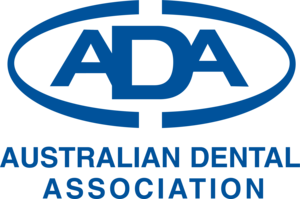Wisdom Teeth REMOVAL
“HOLISTIC” APPROACH TO WISDOM TEETH
Wisdom teeth are the molars that come through at the back of the mouth and it’s very common that they often don't have enough room to come through or develop in the usual way.
Impacted wisdom teeth could cause further dental complications such as infections, gum issues, tooth decay and pain because they are more difficult to clean in comparison to other teeth.
MYth and fact
MYTH: All wisdom teeth should be removed
FACT: Even though a wisdom tooth has given you problems, it may settle down after it has erupted through the gums. In these circumstances we may delay surgery to see if the tooth stops causing problems.
Some wisdom teeth may erupt without causing any issues and need not be removed. In this case, you will need to keep them just as clean as the rest of your other teeth. Which means, effectively brushing, flossing, and cleaning it thoroughlyat home. Regular check-ups will ensure that the dentist can keep an eye on any potential problems they may be causing and will be attended to if necessary. So don’t leave it until you need a last minute emergency if you can avoid it.
Did you know that some people may not have wisdom teeth develop at all?! In the course of evolution, as wisdom teeth are vestigial organs and will be eliminated from human jaws eventually.
MYTH: WISDOM TOOTH EXTRACTION IS A VERY PAINFUL PROCEDURE INVOLVING SURGERY AND GENERAL ANAESTHETIC
FACT: Usually fully erupted wisdom teeth do not need a major surgical procedure. There are cases when wisdom teeth may be impacted, infected or misaligned which may be slightly more complicated but it is very common for wisdom teeth to be removed in the dental chair and can be no different from removing any other ordinary tooth. If it is done one side at a time (for example the upper and lower left), the patient can be more comfortable to function normally to eat and talk thereafter than extracting all four in one visit under general anaesthetic where the recovery time is longer.
MYTH: It is best to remove wisdom teeth before starting orthodontic treatment?
FACT: This varies from case to case. While there is some concern that wisdom teeth may cause the other teeth to move, thus hindering the effects of the treatment, recent studies have shown that this is only rarely the case.
MYTH: While erupting, wisdom teeth push teeth forward and cause crowding in the lower front teeth
FACT: This remains controversial. Having wisdom teeth does not significantly influence incisor crowding and the cause of mandibular incisor crowding is most likely multifactorial. Hence, the recommendation for lower wisdom teeth extraction with the objective of either alleviating or preventing mandibular incisor crowding is not justified.
What Are Some Of The Problems Caused By Impacted Wisdom Teeth?
INFECTION
When an impacted wisdom tooth starts to erupt through the gum, an infection can start around the top of the tooth. The main cause of this is the inability to be able to clean properly under the ‘gum flap’ where food becomes trapped. Infection and inflammation can cause pain, swelling, redness and jaw stiffness. You may also experience bad breath, an unpleasant taste, painful swallowing and generally feeling unwell.
CROWDING
A wisdom tooth may push up against neighbouring teeth and nudge them out of their correct position. This pressure may cause pain in the tooth next to it. This pain can also be due to infection around the wisdom tooth as explained above.
EROSION CAVITY
If an impacted wisdom tooth keeps pushing against the neighbouring tooth it can cause an erosion cavity. This can be a serious problem. Once decay starts and is left untreated, both teethinvolved may become infected or abscessed which may lead to both teeth requiring extraction.
CYSTS
If a problematic wisdom tooth is not removed, a sac of fluid called a cyst can form around the tooth and may displace the tooth. This cyst can destroy bone and damage other teeth and the gums which can be irreversible.





